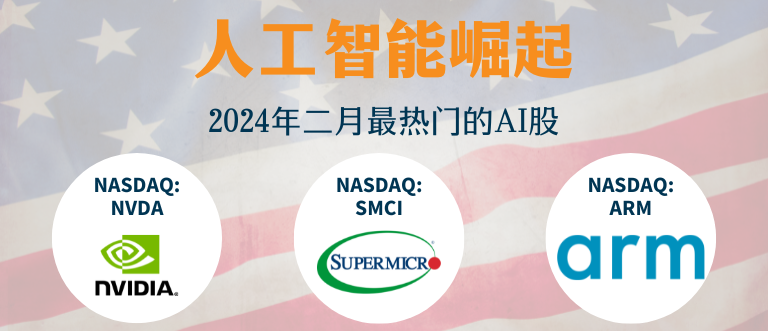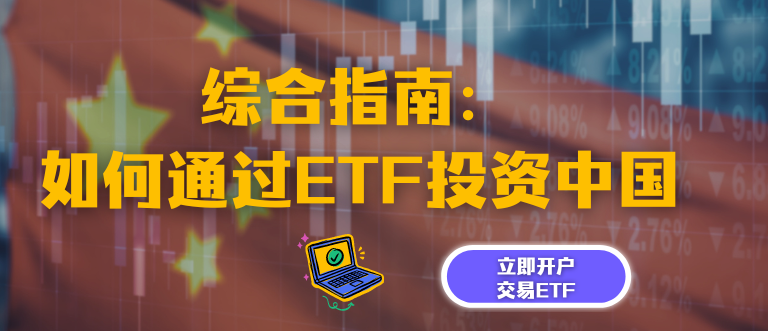Sustainable investment
Table of Contents
Sustainable investment
To ensure financial success, investors can diversify and expand their portfolios using a variety of tactics. The idea of sustainable investing is one trend that is altering how companies and investors view investments. Sustainable investing has influenced positive social change, which has shaped the world. It has also been demonstrated that making investments more sustainable can have a positive financial impact on both individuals and companies. As they tackle the most significant global problems, purpose-driven leaders and organisations can prosper by establishing sustainable business strategies.
What is sustainable investment?
Various strategies are called sustainable investing, in which investors seek to maximise profits while advancing long-term environmental or social benefits. By integrating environmental, social, and corporate governance (ESG) insights with conventional investment methodologies, investors can provide more thorough evaluations and make better investment decisions.
With sustainable investing, businesses are evaluated on their overall contributions to society rather than just their immediate financial success. Investors must consider how their decisions affect the political, social, and environmental environments.
Understanding sustainable investment
Sustainable investment aims to create positive returns while promoting long-term global sustainability through a strategic approach to financial activity that goes beyond conventional financial measurements. Sustainable investors look for opportunities in businesses and initiatives that highly value social impact, environmental responsibility, and ethical business practices. In addition to addressing urgent social and ecological issues, this investment strategy recognises the connection between financial success and overall global well-being, promoting a more resilient and inclusive economy for both the present and the future. This is achieved by matching capital with sustainability goals.
Strategies for sustainable investment
The various strategies for sustainable investment are as follows:
- Impact investors aim to produce profitable returns and beneficial social and environmental effects. They put money into funds that deal with particular global issues, including healthcare, poverty reduction, and renewable energy.
- Investing in companies more dedicated to environmentally sustainable practices than their rivals is the aim of positive screening. They pick businesses at the forefront of their industry’s sustainability initiatives.
- Negative screening eliminates businesses or sectors of the economy that conflict with the moral principles of the investor. Investors might avoid companies that engage in tobacco or environmentally harmful activities.
- By taking part in proxy voting and having discussions with corporations to promote ethical business practices, you may become an activist shareholder. Keep an eye on prospective investments’ ESG ratings and keep up with worldwide sustainability developments.
- A company’s performance may be impacted by changing rules, so keep a close look at new regulations regarding sustainability. Re-evaluate your portfolio regularly to make sure it reflects changing market conditions and sustainability goals.
Importance of sustainable investment
The growing popularity of sustainable investment can be attributed to the concerns of ethical investing, particularly among millennials and impact investors, who seek to support businesses that uphold core principles and effect good change. Companies that adopt sustainable practices are encouraged by sustainable investing, which can result in long-term financial and social benefits.
Encouraging companies to go green helps create mission-driven companies that influence the community and environment beyond just selling products or services. Sustainable business practices are frequently used to address significant global challenges like climate change. Learning about sustainable investment methods will help you decide where and when to invest based on your values and market trends.
Examples of sustainable investment
Including renewable energy assets in a portfolio is a prime example of sustainable investing. Investors can designate their money to businesses developing and running solar or wind energy projects. Encouraging the use of renewable energy helps environmental sustainability goals and the expansion of sectors that reduce their carbon impact. Investments in renewable energy that are sustainable both financially and environmentally can help the world’s energy transition to one that is more ecologically friendly and sustainable.
Frequently Asked Questions
Sustainable investment offers benefits such as long-term financial performance, reduced risk through ESG factors, alignment with ethical values, positive societal and environmental impact, and fostering responsible business practices. Investors can contribute to a more sustainable and resilient global economy while achieving financial goals.
Sustainable investment principles, guided by Environmental, Social, and Governance (ESG) criteria, focus on environmental responsibility, social impact, and governance practices. Investors seek companies with favourable environmental practices, promote social responsibility, and consider effective governance structures. These principles align investments with ethical, sustainable, and socially responsible business practices, contributing to a more inclusive and environmentally conscious global economy.
Sustainable investing is a comprehensive approach that incorporates environmental, social, and governance (ESG) considerations into investment decisions. The objective is to synchronise financial resources with enduringly sustainable methodologies and enterprises that benefit the community and the ecosystem.
The goal of socially responsible investment, or SRI, is to invest exclusively in businesses that meet specified moral or social standards. It seeks to assist companies that uphold socially conscious standards and steer clear of those engaged in actions considered detrimental to the community.
Impact investing actively looks for investments that provide quantifiable, favourable social or environmental effects and financial rewards, going beyond simply considering ethical considerations. Beyond meeting financial targets, the main objective is to effect positive change.
The origins of sustainable investing can be found in the ethical investing practices of the 18th century. Growing social and environmental concerns during the 20th century gave rise to socially responsible investing. After gaining popularity in the late 20th century, the phrase “sustainable investment” now refers to a dynamic field with growing legislative support, worldwide awareness, and various investment products centred around environmental, social, and governance (ESG) factors.
Sustainable investment encourages moral and responsible corporate activities by matching investments with environmental, social, and governance (ESG) standards. Since businesses with good ESG standards are typically more robust, investors in sustainable funds may benefit from possible long-term financial performance. It allows investors to back causes essential to them, improving the social and environmental effects. It also represents an increasing understanding of the relationship between general societal well-being and financial success.
Related Terms
Most Popular Terms
Other Terms
- Options expiry
- Adjusted distributed income
- International securities exchanges
- Settlement currency
- Federal funds rate
- Active Tranche
- Convertible Securities
- Initial Public Offering
- Buyback
- Secondary Sharing
- Bookrunner
- Notional amount
- Negative convexity
- Jumbo pools
- Inverse floater
- Forward Swap
- Underwriting risk
- Reinvestment risk
- Final Maturity Date
- Payment Date
- Secondary Market
- Margin Requirement
- Mark-to-market
- Pledged Asset
- Yield Pickup
- Subordinated Debt
- Trailing Stops
- Treasury Stock Method
- Stochastic Oscillator
- Bullet Bonds
- Basket Trade
- Contrarian Strategy
- Exchange Control
- Notional Value
- Relevant Cost
- Dow Theory
- Speculation
- Stub
- Trading Volume
- Going Long
- Pink sheet stocks
- Rand cost averaging
- Economic Bubble
- Ask Price
- Constant prepayment rate
- Covenants
- Stock symbol
- Companion tranche
- Bourse
- Beneficiary
Know More about
Tools/Educational Resources
Markets Offered by POEMS
Read the Latest Market Journal

本文旨在为中级外汇交易者提供必要的信息和知识。它将涵盖我们上一篇文章 “五分钟看懂世界上最活跃的市场-外汇差价合约(FX CFD)...

解锁台湾股市的投资潜力!深入了解由强大的技术驱动型经济推动的股票市场,2023 年机械和电气设备将占出口的 69%。在政治稳定、投资者友好的法规和健全的法律框架下,探索台积电和富士康等全球顶级企业。台湾股市值得称赞的历史表现和在国际贸易中的的重要性使其更具吸引力。在这个科技实力雄厚、经济稳定、充满活力的股票市场中,抓住增长机遇!

了解外汇市场 外汇交易市场又称外汇市场,是一个买卖货币的全球性金融市场。它是全世界规模最大、流动性最强的金融市场,每日交易量超过 6 万亿美元。但外汇市场有一个重要却常被忽视的一点,就是它受交易心理的影响。在本文中,我们将探讨外汇市场的复杂性,还有把重点放在交易心理与传统交易策略共同发挥的关键作用...

五分钟看懂世界上最活跃的市场 -外汇差价合约(FX CFD)
外汇交易市场俗称外汇或外汇市场,是全球金融市场的支柱。它是世界上最活跃的市场,2022 年 4 月,全球交易额达到创纪录的每天 7.5 万亿美元[1] 。这个活跃的市场为交易者提供了利用货币价格波动赚取利润的机会。在本文中,我们将解释外汇市场的基本原理,助您了解其投资机制。 什么是外汇? 外汇市场是一个分散的全球市场,世界上所有货币都在这里进行交易...

随着通胀数据趋向 2% 的理想目标,人们普遍乐观地认为,在任何可能的降息之前,市场都不会受到不利影响。以下是美股市场2024年的一些重要事件,投资者在做出投资决策时可以参考留意。

根据《东南亚态势报告:2023》,失业和经济衰退是当前东南亚面临的主要挑战。各国采取了各种政策和措施以恢复经济,尽力摆脱新冠疫情的影响。尽管如此,越南在经济和社会方面展现出了令人满意的复苏迹象,经济增长逐季上升,成为世界经济的亮点之一。虽然全年GDP增速放缓至5.05%,低于政府6.5%的目标,但越南仍然是地区和世界经济增速较快的国家之一。






















